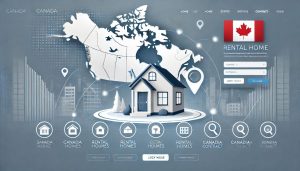In this era, the world is facing unprecedented economic challenges, and of course, it is trying not to get lost in this inequality. In fact, the economic attacks and the subsequent increase in unemployment have had a great impact on the quality of life of people around the world. Of course, if we ignore the damage caused by COVID-19 to the global economy, social inequalities have also fueled such a significant recession in the global economy. Is.
In the meantime, the best solution that could revive the economy was new technologies, especially artificial intelligence. Turning to this technology was so noticed in the world that most businesses experienced a growing trend, so that currently, the intelligentization of lifestyle and business is approaching a stage where it has become a fixed and unchangeable part of lifestyle. Since advanced countries are implementing this technology in the best way in their country’s economy, many developing countries are also trying not to lag behind by updating their knowledge in this regard. Indeed, AI technology has emerged as a potential tool to address some of the most pressing economic challenges we face today. In this article, we try to discuss the importance of this technology in the global economy.
Different levels of the economy and its impact on businesses
With the introduction of artificial intelligence technology into the field of businesses, it has become possible to analyze large amounts of data quickly and accurately, to identify patterns that may not have been noticed before. This issue can potentially create a new horizon regarding how economies work at different levels, and as a result, this issue brings countries’ economies closer to the global standard.
There is no doubt that economies are complex and dynamic systems, and to understand how they work, it is important to examine them at both micro and macro levels. In microeconomics, the feedback of the behavior of consumers and producers, as well as the establishment of market balance and how to determine the price in different markets, is examined, and therefore, for growth at this level of the economy, it is necessary to study the decisions and behavior of consumers and producers, and from that Since “time” and “money” are two important options that people face, resources are allocated according to these two options.
At the microeconomic level, families and business owners are specifically examined. These two groups interact with each other in the market of goods and services and as a result of these interactions, they can determine prices, wages, job opportunities and production plans. This issue affects people’s lives on a daily basis. Microeconomic policies create incentives for individuals in labor markets by promoting competition between firms or encouraging investment in new technologies.

At the macroeconomics level, we look at broader trends in the economy, such as the unemployment rate or GDP growth over time, which can give us insight into the overall performance of a country’s economy compared to other countries. The goal of macroeconomic policies is to achieve long-term goals such as price stability through fiscal policies. These policies help governments manage their finances and invest in infrastructure projects such as roads and bridges, which in turn create employment.
Now with the problems that have been created in the economic field, only one thing can save the international economy from this mess, and that is a structure that both moves businesses forward and compensates for previous losses in the midst of these challenges.
Economic challenges and its impact on the international economy
One of the biggest issues we are currently facing is rising poverty levels due to job losses or reduced wages for those who are still employed. In other words, many people have lost their jobs altogether and are struggling to make ends meet. In addition, working people often face reduced wages or reduced working hours, which causes the level of poverty in the society to increase.
Another major challenge that governments around the world are facing is how to grow and develop the economic sector in such a way that, firstly, it does not reduce the challenging shortages in the standard of living, and secondly, this growth will provide the means for progress in the future.
The truth is that what can put the world in an improved period and of course should be carefully managed is investing in sectors that drive society forward; What we mean by careful review is that new decisions for such measures should not be in a way that causes more harm than general benefit or causes problems in terms of economy or health.

Artificial intelligence, a rebirth for business prosperity
The answer to “how businesses can survive in these difficult times” can be one thing: turning to new technologies such as artificial intelligence. In fact, instead of waiting for things to fix themselves, every business owner needs information and strategies to improve things before they get worse.
This technology can be used for quick and accurate analysis of a large amount of data and provide economists with the possibility to make correct decisions regarding international interventions and reduce inequality between countries. In addition, artificial intelligence can lead to increased efficiency and cost savings worldwide by automating processes such as financial transactions or tax collection.
This emerging technology can use learning algorithms trained on past data to predict future trends more accurately than traditional methods. Artificial intelligence also allows economists to identify areas where their policies should be changed to be more effective in achieving their goals. For example, researchers have developed models that use artificial neural networks (ANNs) combined with geospatial analysis techniques to help them assess how specific policies might affect different regions based on conditions such as population density or Access to available resources is effective. Certainly, the answer to this question would not be possible without the power of advanced computing technologies now available through cloud platforms.
Another application involves using natural language processing tools alongside large data sets collected from social media sites such as Twitter. This enables experts to detect changes in public opinion on specific issues much faster than manual methods have previously done, and gives policymakers time to react if needed. Deep learning algorithms are also widely used in banking systems to prevent fraudsters from exploiting unsuspecting customers.
All in all, AI holds promise for tackling some of the biggest economic challenges facing societies around the world today. According to the feedback of the last few years, the best way to control these challenges and update business systems is to use new knowledge such as artificial intelligence. Of course, the effectiveness of this smart technology depends on how well the governments use its capabilities and what benefits it guarantees for the people of that society.
The benefits of using artificial intelligence in the economy
The truth is that artificial intelligence, in addition to removing a heavy burden from the shoulders of business owners at every stage of economic activities, creates other consistent jobs that will be very efficient compared to the advancement of artificial intelligence technology in all economic dimensions around the world. This is one of the advantages of this technology. In fact, many experts believe that automation will create many jobs because machines need people to know how they work. In fact, there is still plenty of room for human creativity, even in highly mechanized industries. So if we want to solve some important economic challenges directly, it seems that artificial intelligence has advantages that can solve these problems in the future. Here are some of the benefits of using artificial intelligence in the economy:

1. automation
One of the most important advantages of using artificial intelligence is to automate many tasks that were previously done manually or required human intervention. This reduces labor costs as well as increases efficiency by eliminating repetitive tasks such as data analysis, so employees can spend more time focusing on valuable activities such as innovation and problem solving.
2. Improve customer service
Another benefit of using artificial intelligence in economic activities is the improvement of customer service through automated chatbots that can quickly answer questions without the need for manual input from an employee, saving time and money, and at the same time, the answers Provide satisfaction to customers. In addition, this technology enables companies to personalize their customer experiences based on past interactions and create a more tailored experience that leads to increased satisfaction levels among users.
3. Smarter decision making
With access to large data sets, artificial intelligence enables organizations to act faster to make important decisions, because these algorithms are able to analyze a large amount of information at a moment and get a good result. This ability gives businesses a competitive advantage based on similar resources and helps them stay ahead of their competitors when it comes to making strategic decisions.
In sum, all the advantages of using artificial intelligence in the economic field make us aware that this technology has made various industries use it in the best way, because its processes improve the overall user experience while reducing costs.

RCO NEWS

















